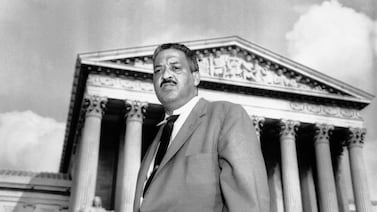A judicial panel sided with the state on Wednesday and dismissed remaining legal claims raised in two lawsuits challenging Tennessee’s private school voucher law.
The judges ruled that Metropolitan Nashville and Shelby County governments, along with a group of parents who oppose vouchers, have no legal standing to challenge Tennessee’s 2019 Education Savings Account law, which provides taxpayer money to pay toward private school tuition.
Voucher advocates quickly hailed the decision by the three-judge panel of Davidson County Chancery Court as a victory for parents wanting more education choices for their children.
“Today is a great day for educational freedom in Tennessee,” said Justin Owen, president of the Beacon Center of Tennessee, one of several groups involved in the case.
But the ruling also could position the nearly 3-year-old legal dispute for a hearing before a higher court.
“We are reviewing the opinion and will discuss a possible appeal when we return to work next week,” said Wally Dietz, Metro Nashville’s law director.
The judges dismissed the argument that both governments face financial injury in funding their local public schools when students choose to withdraw and enroll in private schools — taking their funding with them.
In a 26-page decision, they cited a provision of the law that — subject to appropriation by the legislature — replaces any funding lost through vouchers through a school improvement grant program for the first three years.
Thus, the judges wrote, the “Plaintiffs’ claims are not yet ripe because the ESA replaces the diverted funding for at least three years.”
But their decision does not necessarily put the case to rest.
“We are disappointed by the court’s order and disagree with its conclusions,” said Chris Wood, a Nashville attorney representing parents and taxpayers in a second lawsuit opposing the law. “We are reviewing our options, which include appealing the court’s decision.”
The ruling came from Chancellor Anne Martin, Judge Tammy Harrington, and Judge Valerie Smith under a new state law requiring that constitutional matters be heard by three judges representing each of the state’s three grand divisions instead of by a single judge based in Nashville.
But Martin, the Nashville judge who initially declared the law unconstitutional in 2020, wrote that, while she concurred about the issue of standing, she dissented over other issues, including the plaintiffs’ arguments that vouchers will create unequal education systems. The state constitution says Tennessee is obligated to maintain a system of free public schools that provides for equal educational opportunities for its residents.
Wednesday’s ruling is the latest in the legal dispute after the Tennessee Supreme Court upheld the embattled voucher law in May.
The high court overturned another argument that the statute was unconstitutional because it applied only to Davidson and Shelby counties, without local approval. That ruling cleared the way for the program’s launch this school year. Then, in September, the state attorney general’s office urged the panel to dismiss all remaining legal challenges.
A spokeswoman for Gov. Bill Lee, who pushed for the voucher law, did not immediately respond when asked for comment.
Marta Aldrich is a senior correspondent and covers the statehouse for Chalkbeat Tennessee. Contact her at maldrich@chalkbeat.org.








